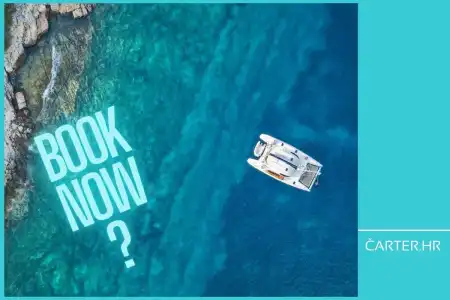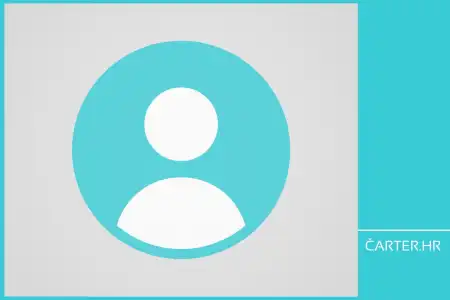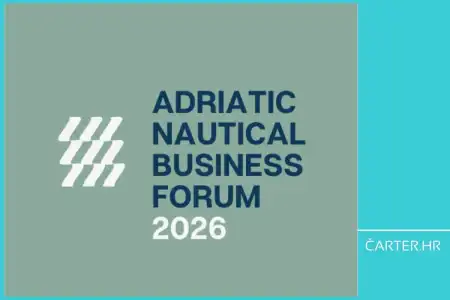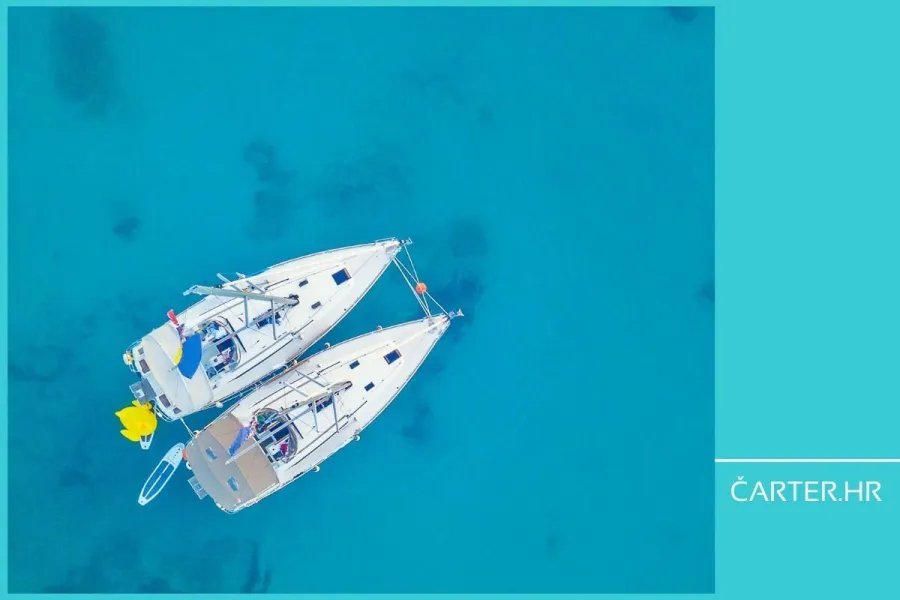
- 29.07.2025.
- News, Technology
Your guests want peace. They want everything to run smoothly and work properly, without needing something explained three times. When the boat “knows” what the guest needs, we’re no longer talking about just a yacht charter, but about an experience that stays with them. And that’s where the real value of smart technological solutions on your boat begins.
On board, just like anywhere else, people appreciate when things work simply, predictably, and without additional questions.
If you’re still explaining where the light switch is or why the air conditioning won’t turn on right away, you’re not falling behind the competition – you’re falling behind guest expectations, which have changed.
Charter guests, regardless of where they come from or whether it’s their first time or not, increasingly expect an experience that goes hand in hand with the technological standards they’re used to on land.
Technology doesn’t have to be expensive to make an impact. It just needs to work, when it should, how it should.
And that’s the difference between a guest who says “thanks, it was nice,” and one who says “see you next year.”
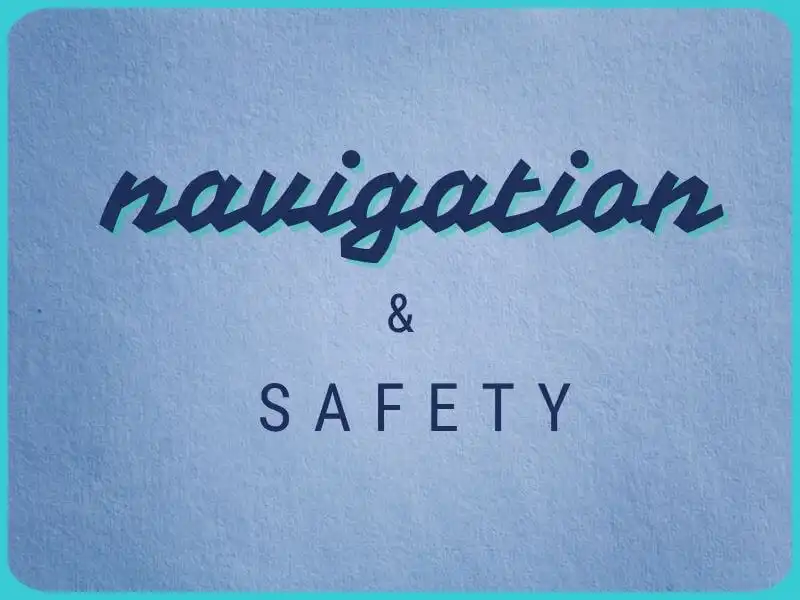
1. Navigation and safety
Modern navigation technology is now an essential part of the experience, affecting both safety and the overall impression for guests – especially those with some boating experience or who simply want to know more about the journey.
AR navigation (Augmented Reality)
One of the leading tools is Raymarine ClearCruise AR, which uses cameras and GPS data to display the real surroundings. Guests can see virtual markers for buoys, other boats, navigation channels, and distances directly on the screen.
Digital radars and sonars
Garmin Fantom radars use Doppler technology to detect objects approaching or moving away, allowing faster reaction times.
The system distinguishes between static objects (e.g. buoys) and moving ones (e.g. other vessels), and the colors on the screen help guests understand what’s happening around them. This means easier marina entry at night or in fog.
Fire and gas detection systems
Boats increasingly feature systems like BoatMonitor or Yacht Sentinel, which detect temperature changes, smoke, or gas presence and automatically send alerts via app. In case of a gas leak in the kitchen or a generator issue, guests receive a notification even when they’re out on the deck, which increases the feeling of control and safety.
Real-time boat tracking and monitoring
Platforms like Sentinel Marine, NavFleet, or Nautic-Alert offer detailed monitoring of all systems on board. This includes information such as battery levels, water and fuel consumption, anchor position, and sailing route. For guests who want to be involved in the daily operations of the boat, this information is available via app without needing to ask crew members.
In practice, this means for the guest:
- A better overview of where they are and where they’re going
- A greater sense of safety, especially in poor weather conditions
- The ability to track information without relying on the crew
- The impression of being involved and active participants in the journey, not just observers
These technologies don’t have to be complex or expensive. Their value lies in reducing stress, increasing safety, and providing added value to guests who increasingly expect informed and interactive services even while on holiday.

2. Multimedia and entertainment
The days of listening to the radio and watching TV with an antenna on board are long gone.
Guests coming aboard today expect conditions that match what they have at home – whether it’s music on deck, Netflix in the cabin, or an online meeting from the saloon, the technology must be ready to support their habits.
Smart audio systems
Systems like the Fusion Apollo series allow full control of music in each zone of the boat – e.g. saloon, cockpit, cabins. Connecting to smartphones via Bluetooth or Wi-Fi works quickly and reliably.
Guests can use the Fusion-Link app to manage music directly from their device, select playlists, adjust volume by zone, or sync the system with existing streaming platforms.
Satellite internet
Devices like Starlink Maritime provide stable and fast internet connection at sea, including remote bays that were recently without signal. Starlink currently covers most of the Adriatic and delivers speeds from 40 to 220 Mbps, which is enough for streaming, video calls, and even online gaming.
This technology is also excellent for guests working remotely.
Smart TV systems and streaming
More and more boats are equipped with TVs featuring Android TV or Apple TV platforms. By connecting to the internet via Wi-Fi (local or satellite), guests can use apps like Netflix, YouTube, Spotify...
They can watch on-demand content, and many systems allow wireless screen sharing from mobile phones (e.g. AirPlay or Chromecast).
Practical benefits for the guest:
- No more “radio static,” each guest chooses their sound
- Access to favorite content without interruptions, even while sailing
- Ability to work from the cabin as if they were at home
- Better connection with family or colleagues while traveling
- Entertainment that doesn’t depend on weather or mainland signal
With the installation of these systems, the boat is no longer an isolated point, but a place where guests can maintain their digital habits and routines.
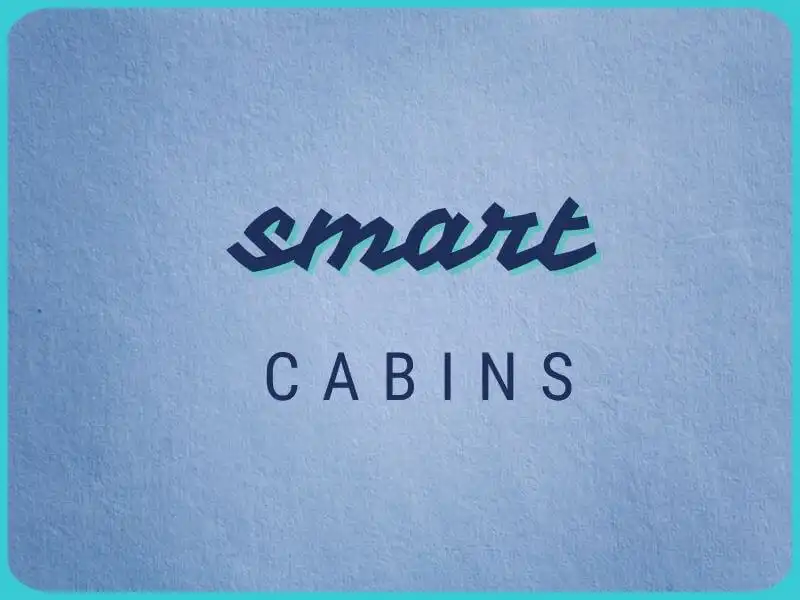
3. Smart cabins
Cabins on boats are increasingly resembling hotel rooms, not just in appearance but also in functionality. Guests boarding expect more than a comfortable mattress and fresh air.
They want to have control over the space, just like they do at home. This is where technology that combines comfort, practicality, and elegance comes into play.
Control of climate, lighting, and curtains via mobile apps
Systems like Control4 and Crestron Home allow complete control over the cabin environment. Guests can use an app on their own phone (or a touchscreen built into the cabin) to adjust the temperature, turn lights on and off, set lighting intensity, or close the blinds.
The system remembers the settings, so guests on multi-day trips can quickly restore the conditions that suit them best.
Wireless charging and smart sockets
Access to power sockets on board is often limited, and various adapters complicate things further. Installing Qi wireless chargers (e.g. Belkin BoostCharge, Anker PowerWave) on nightstands and work surfaces allows guests to easily charge phones, watches, or headphones without cables. Smart sockets enable devices to be turned on and off via an app, and also monitor consumption, which is useful for reducing unnecessary electricity use when no one is in the cabin.
Air quality and CO2 sensors
Air in cabins without direct ventilation can quickly become stale, especially at night or when air conditioners are used. Devices like Netatmo Healthy Home Coach or Airthings Wave Plus monitor carbon dioxide levels, temperature, humidity, and noise.
When CO2 levels rise, the system automatically activates ventilation or sends an alert. These devices are especially useful for guests with children, elderly persons, or those sensitive to indoor air quality.
For the guest, this means:
- A personal cabin experience tailored to their habits
- Greater comfort without unnecessary movement or searching for equipment
- A healthier environment for staying, sleeping, and relaxing
- Fewer technical questions and calls to the skipper or yacht charter base
In practice, this technology means that a guest can return to their cabin after dinner, lie in bed, turn off the lights, adjust the temperature, and put their phone on the charger – all without searching for switches or getting out of bed. These experiences may not seem revolutionary at first glance, but that is exactly where their value lies – quietly and subtly increasing guest satisfaction and making life on board more pleasant and familiar.
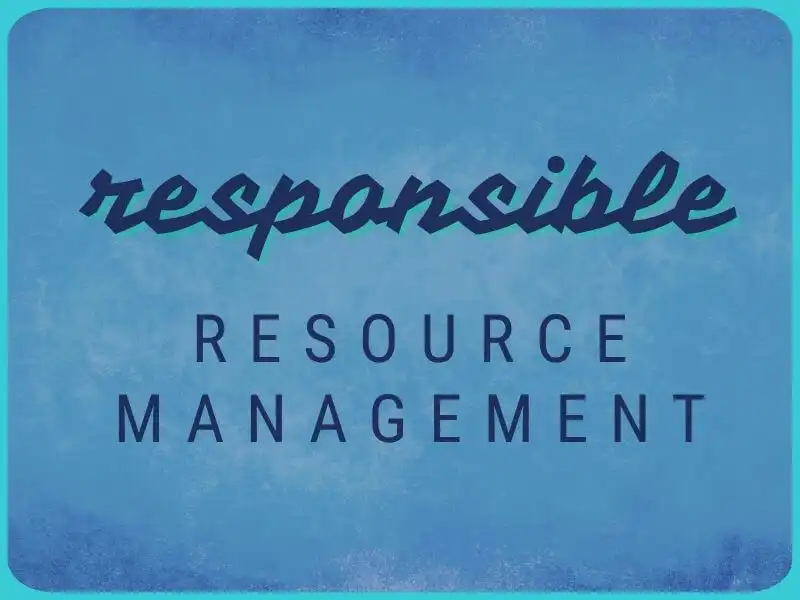
4. Responsible resource management
Guests are increasingly choosing their vacations based on how aligned they are with their values. The issue of energy, plastic, and water consumption is becoming important in boating as well.
Fleets that install technologies that help reduce consumption, lower the need for marina visits, and stand out in the offer.
For the guest, this means more autonomy and a feeling of actively participating in something that makes sense.
Solar panels and consumption monitoring systems
Victron Energy offers systems that integrate solar panels, batteries, chargers, and monitoring modules. For example, the Victron GX Touch 50 paired with the SmartShunt sensor allows guests and skippers to monitor real-time energy production and consumption on the vessel.
Data is displayed on a screen in the saloon or via an app, showing how much energy the solar panels are currently producing, which batteries are charged, and how much energy is being consumed by fridges, lights, or chargers.
Desalination and water filtration systems
On boats equipped with a watermaker, such as those by Schenker or Spectra, it’s possible to produce drinking water from seawater daily. This reduces the need for refilling at marinas and eliminates plastic bottle usage.
These systems consume relatively little energy, and newer models operate almost silently.
Guests can shower, wash dishes, or refill bottles knowing they’re not “using up supplies,” but rather using a renewable resource – the sea. When combined with filters for reusing water in sanitary systems, the boat becomes nearly self-sufficient for multi-day cruising.
Eco-mode functions on fridges and air conditioners
Manufacturers like Dometic and Webasto offer systems with so-called eco-mode functionality.
When the boat is anchored and powered by batteries, the system automatically switches to a lower consumption mode without guests noticing a significant drop in performance. For example, the air conditioner will maintain a comfortable temperature with lower energy use, while the fridge will retain its temperature but run the compressor in shorter intervals.
This saves energy and avoids unnecessary generator use.
For the guest, this means:
- No need to constantly think about water refills and battery charging
- Fewer trips to marinas means more time at sea
- A sense of responsible behavior without sacrificing comfort
- Clear information about consumption creates a feeling of control, not limitation
When a boat displays “we are producing more than we consume” or “we don’t need to refill water for the rest of the trip,” it doesn’t go unnoticed.
Guests recognize this as a standard they want to experience again, which directly impacts their recommendation or repeat booking.
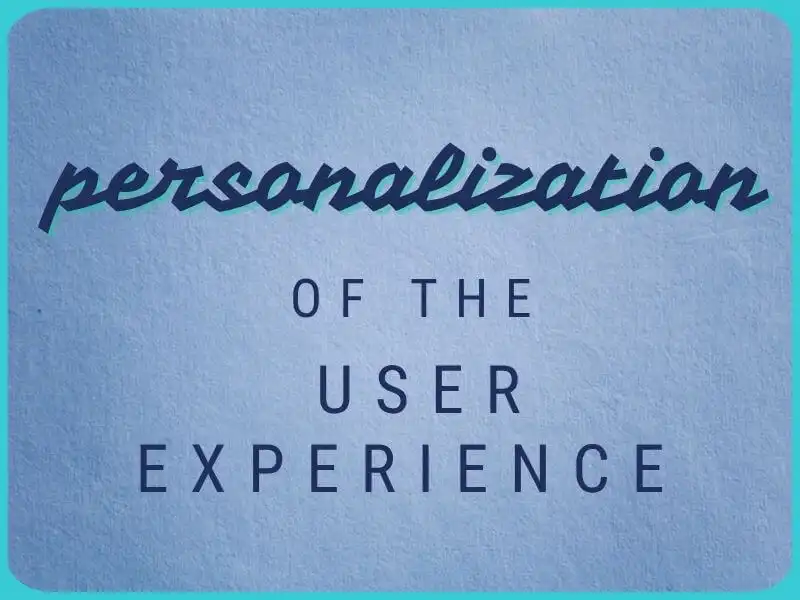
5. Personalization of the user experience
Guests are increasingly moving away from “standard offers” and expecting someone to actually listen to them, and yacht charter must follow this trend.
Technology plays its role here by enabling everything from check-in to check-out to be tailored to the guest’s real needs.
A personalized approach is not reserved only for luxury hotels – it is also achievable for smaller yacht charter fleets that want to retain loyal guests.
Welcome and info apps
Tools like GuestOne offer digital guides that guests receive as soon as they book the vessel.
These apps include personalized routes based on location, length of stay, and preferences (e.g. quiet bays vs. marinas with restaurants), video instructions for using the boat (e.g. how to start the engine, use the toilet, drop anchor), as well as restaurant, route, and beach suggestions with helpful local tips.
Everything is available in the guest’s language, even offline. This reduces the number of questions and increases the impression that someone cares about their time.
Preference-tracking software
By using CRM tools like Salesforce, Zoho CRM, or industry-specific solutions, charter operators can record guest information that goes far beyond names and arrival dates.
If someone doesn’t eat gluten or has a child afraid of waves, this information is saved and can be used the next year or to prepare personalized recommendations.
Digital concierge systems
Platforms like YachtNeeds, or local versions integrated into yacht charter apps allow guests to order services like catering, dinner reservations, massages, scooter rentals, or transfers from the boat without calling or writing emails. The app detects the boat’s location and connects the guest with verified local providers.
This system works even without crew on board, which is especially important for bareboat charters. It eliminates the feeling of being “cut off” from the shore and creates the sense that guests have support, even when they’re alone at sea.
For the guest, this means:
- The feeling that someone is truly paying attention
- Less unnecessary searching and more enjoyment
- Faster resolution of specific requests or needs
- A positive impression that lasts even after returning home
One guest may want a recommendation for a romantic dinner by the sea, while another is looking for the best diving spot. Technology makes it possible for both to get exactly what they’re looking for – without additional effort from your staff.
This quiet but precise personalization makes the difference between just another holiday and an experience that gets recommended to friends.

Less complications, more satisfied guests
Realistically, guests aren’t asking for technology. They’re asking for simplicity, fewer complications, and a feeling that someone thought of them in advance.
Thoughtfully used technology – invisible but effective – makes that possible.
It reduces the uncertainty of sailing, saves you time explaining things, and solves problems before they appear.
All of this directly affects reviews, repeat bookings, and referrals.
If you want a competitive fleet without hiring more staff, now is the right time to modernize.
By introducing proven solutions for navigation, energy efficiency, personalization, and communication, you’re not just investing in extra equipment – you’re investing in more satisfied guests, fewer inquiries, and better control of your business.
If you want an expert review of which technologies make sense for your business model, contact us.
And if you want to be the first to know how technology is changing the charter industry from the inside, subscribe to our newsletter.
Categories of trends
- News
- Sale
- Marketing
- SEO
- Web design
- Social media
- Technology
- Regulations
- Management
- Education
- Finances
- User experience
Newsletter
Sign up for the newsletter and receive the latest trends and tips straight to your inbox



